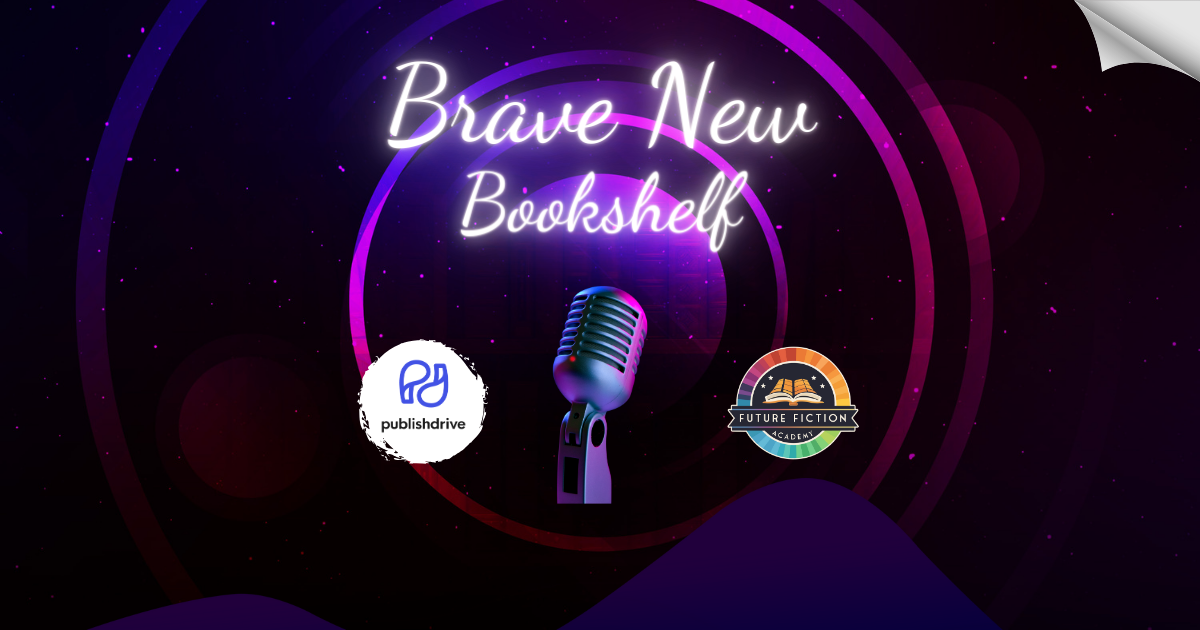Brave New Bookshelf Episode 42: Innovative AI Storytelling with Russell Nohelty from Author Stack

In the latest episode of Brave New Bookshelf, Steph and Danica dive into a fascinating conversation with Russell Nohelty, the bestselling author behind an expansive portfolio of genre-spanning stories and instructional content. With over 50 titles in the Cosmic Weave universe and 16 nonfiction books to his name, Russell opens up about his evolving relationship with artificial intelligence and how it now plays a significant role in his writing practice.
Apple Podcasts | Spotify | Amazon Music | YouTube | iHeartRadio | RSS Feed
From Skeptic to Supporter: Russell’s AI Transformation
Russell didn’t always see value in AI. In fact, he approached it with hesitation until a pivotal dialogue with fellow author Steph Pajonas shifted his view. The discussion, centered on how AI can empower writers with different abilities and boost productivity, reframed the way he defined authorship. For Russell, writing is less about physical input and more about shaping a meaningful experience for readers. That revelation became the foundation of his AI integration.
"Storytelling is about curating an experience for readers, not just typing words on a page."
Russell Nohelty, on the essence of storytelling.
Expanding the Creative Process with AI
Today, AI is a regular part of Russell’s workflow. He sees it as a creative partner, especially in the early stages of story development. Whether mapping out plot arcs or transforming rough ideas into structured narratives, Russell uses AI to fast-track his process while preserving the heart of his storytelling craft. He’s clear, though: AI is a powerful assistant, not a replacement. The writer’s voice and editorial instinct remain central to crafting emotionally resonant stories.
A Tale of Two Disciplines: Fiction and Nonfiction
Russell’s use of AI varies depending on the genre. In nonfiction, he finds AI exceptionally useful for organizing themes, expanding outlines, and even repurposing social media threads into publishable articles. Fiction, on the other hand, requires a more hands-on approach. AI can generate scenes or dialogue, but maintaining continuity, voice, and deep character arcs still falls squarely on the author’s shoulders.
The Joy of Creative Collaboration
What excites Russell most is the spontaneous, improvisational nature of working with AI. He likens it to “riffing” with a collaborator—bouncing ideas back and forth until something truly original emerges. This interactive process often leads to insights or narrative directions he might not have reached alone.
Tools of Choice
When it comes to practical tools, Russell favors ChatGPT for most of his writing. He also experiments with Claude for certain tasks, though he notes its current limitations with handling long-form content. For him, the key is matching the right AI tool to the specific creative or analytical job at hand.
"Different AI tools have unique strengths and should be used accordingly."
Russell Nohelty, on selecting the right AI tool for the task.
What Writers Can Learn from Russell’s Approach
- Writing is about design, not just output. AI helps with mechanics, but vision and voice come from the author.
- Genre matters. Use AI differently depending on whether you're crafting fiction or nonfiction.
- Let AI spark, not steer. Collaboration can unlock surprising creative breakthroughs—but don’t hand over the wheel.
- Choose your tools wisely. Not all AI platforms serve the same purpose; tailor your toolkit to your workflow.
- Embrace experimentation. The best results often come from being open to unexpected directions.